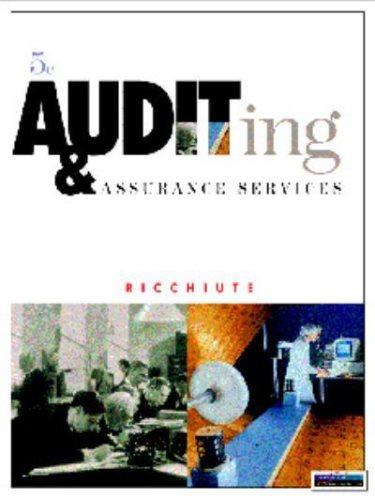Since the Exxon Valdez incident brought surface contamination to the evening news, the press has been replete
Question:
Since the Exxon Valdez incident brought surface contamination to the evening news, the press has been replete with references to environmental disasters, making most everyone conscious of the devastating effects of industrial pollution, toxic waste disposal, and manufacturing and transport accidents. Underscoring many of these articles and newscasts is the unmistakable implication that industry is mortgaging the future of the planet and, in particular, that audited financial statements may not adequately portray the effects of environmental liabilities. For example, the March 9, 1993, late edition of the New York Times in a piece by John Holusha entitled, "Stocks May Not Reflect Cleanup Liabilities That May Come Soon," began, "The earnings of Smokestack America seem likely to face new setbacks because of future liabilities for cleaning up the environment, according to a Price Waterhouse survey. The survey, which covered manufacturing companies, public utilities and extractive industries, found that 62 percent have known environmental liabilities that are both material and undisclosed."
Required:
Using the newspaper and magazines file in NEXIS, Mead Data Central's automated data retrieval system, or newspapers and magazines in a library, select an article or series of articles about environmental matters involving a particular company in, for example, the manufacturing, utilities, or extractive industries. Using the annual report file in the National Automated Accounting Research System (NAARS) or copies of annual reports in a library, select the annual report of the same company issued for the fiscal year that includes the date of the article. Draft a report that accomplishes the following:
1. Summarize the article(s), indicating key issues that would suggest the need for disclosing environmental liability in the financial statements.
2. From the key issues in (1) list and explain questions an auditor would likely pose to the management of the company you've selected.
3. Determine whether the company's financial statements include disclosures you think are related to the article and, either if so or if not, explain why you believe the company is or is not among those implicated in the New York Times article referred to above.
Step by Step Answer:






